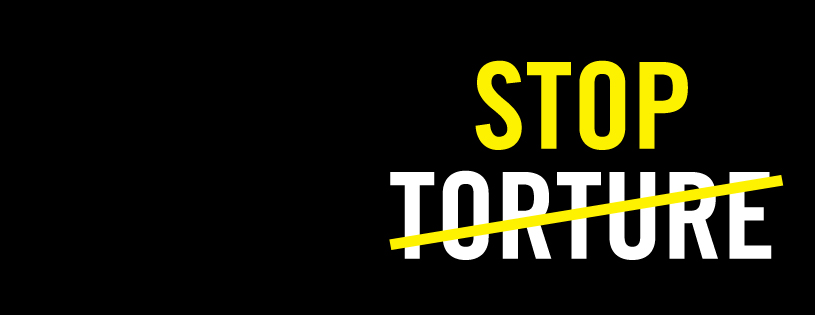He was getting medical care for his son in Tijuana, northern Mexico, when they arrested him. Blindfolded, he is taken to a military base. Struck in the ribs, forced to walk on his knees, kicked, punched in the stomach. A plastic bag is put over his head to provoke near asphyxiation. Stripped, he is forced to lick clean the shoes of other detainees. Then he’s forced to sign a false statement. The authorities see the wounds; they do nothing.
You sit down and pick up a pen. ‘Dear President…’ Something about the government. Something about the Istanbul protocol – you take another biscuit – the international community, medical examinations, independent investigations… the letter meets the others, it’s put in the letterbox, you go home.
Angel Colon couldn’t stand up to his torturers, his imprisoners, the government. But thanks to thousands of similar letters, on 15 October 2014 the Mexican Federal Attorney General agreed to drop charges and release him unconditionally. Meriam Ibrahim, a Sudanese mother sentenced to death for her refusal to denounce her Christian faith; after over one million joined the Amnesty campaign, she was released, now living in New Hampshire.Two years ago, Mikhail Kosenko was committed to a closed psychiatric hospital by a compulsory treatment court order for his role in the Bolotnaya Square protest. He is now released. Nabeel Rajab, a prominent Bahraini human rights activist jailed for calling for anti-government protests, was released on 24 May. There are hundreds more success stories; all it takes is a brief Google search.
In December 2013, more than 2.3 million letters, emails, SMS messages, faxes and tweets were sent in Amnesty’s “Write for Rights” campaign, beating last year’s record of 1.9 million actions; and this year, the recently launched ‘Stop Torture’ campaign is seeking even more. Whether its letters of support for the family, the community, the survivor or to those directly responsible, Amnesty is a name to be feared and respected; whether it works, or doesn’t. In the words of Belarusian Ihar Tsikhanyuk, a drag artist and LGBTI activist beaten by police for being gay: “When I’m left with no hope to fight, I’ll get a letter and the light of hope appears again,” he said. “I remember I’m not alone”.
It’s not a popular opinion to have these days – most would rather absolve their guilt in cynicism – but people power is important, relevant, unifying. And it’s effective.
Bronte Philips

